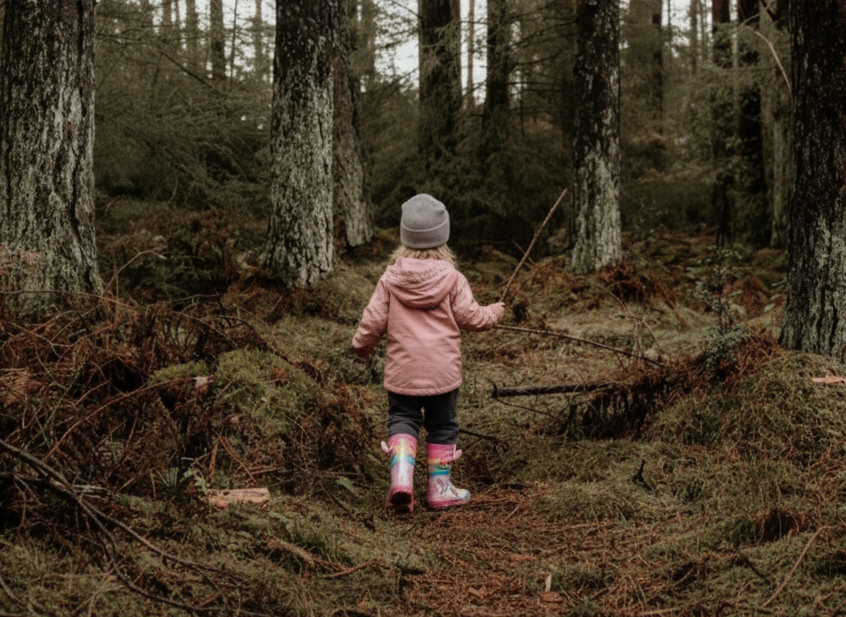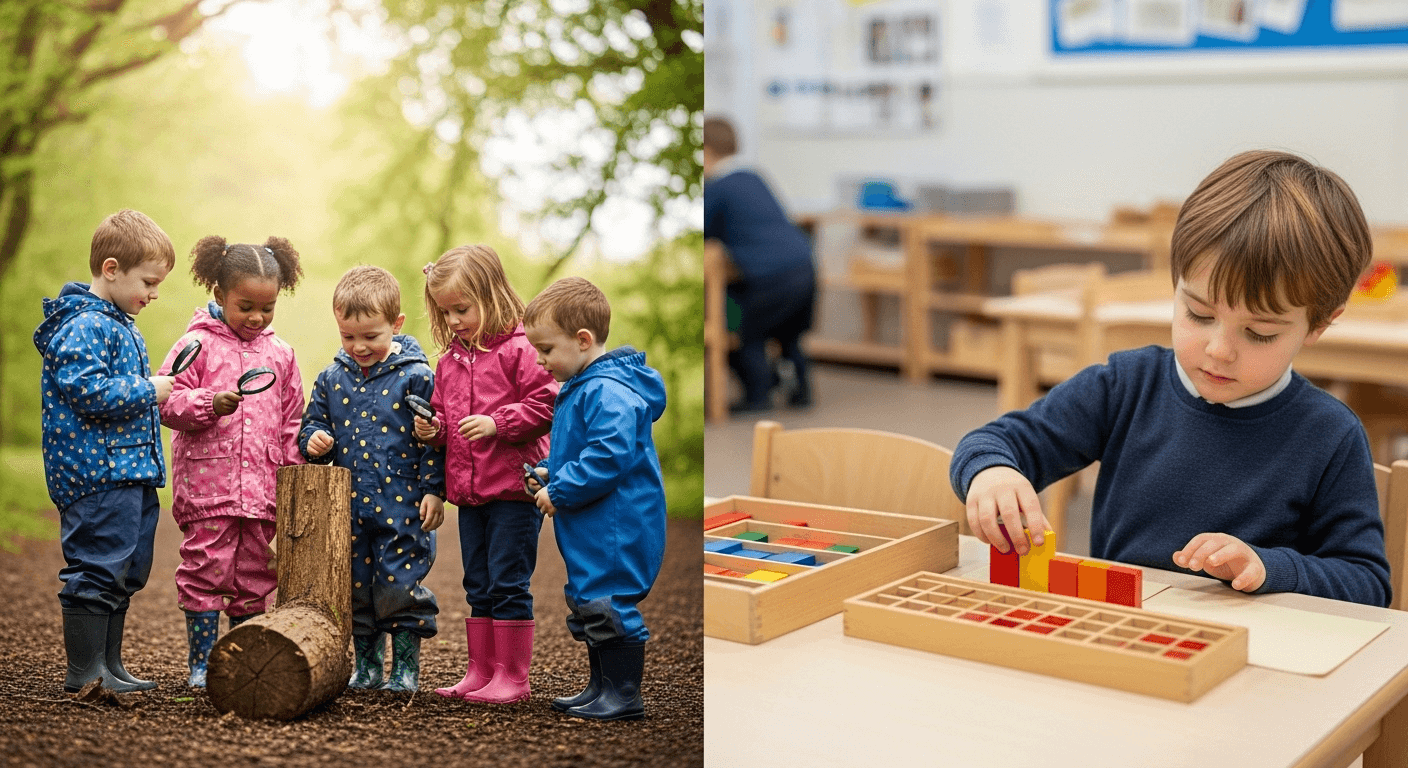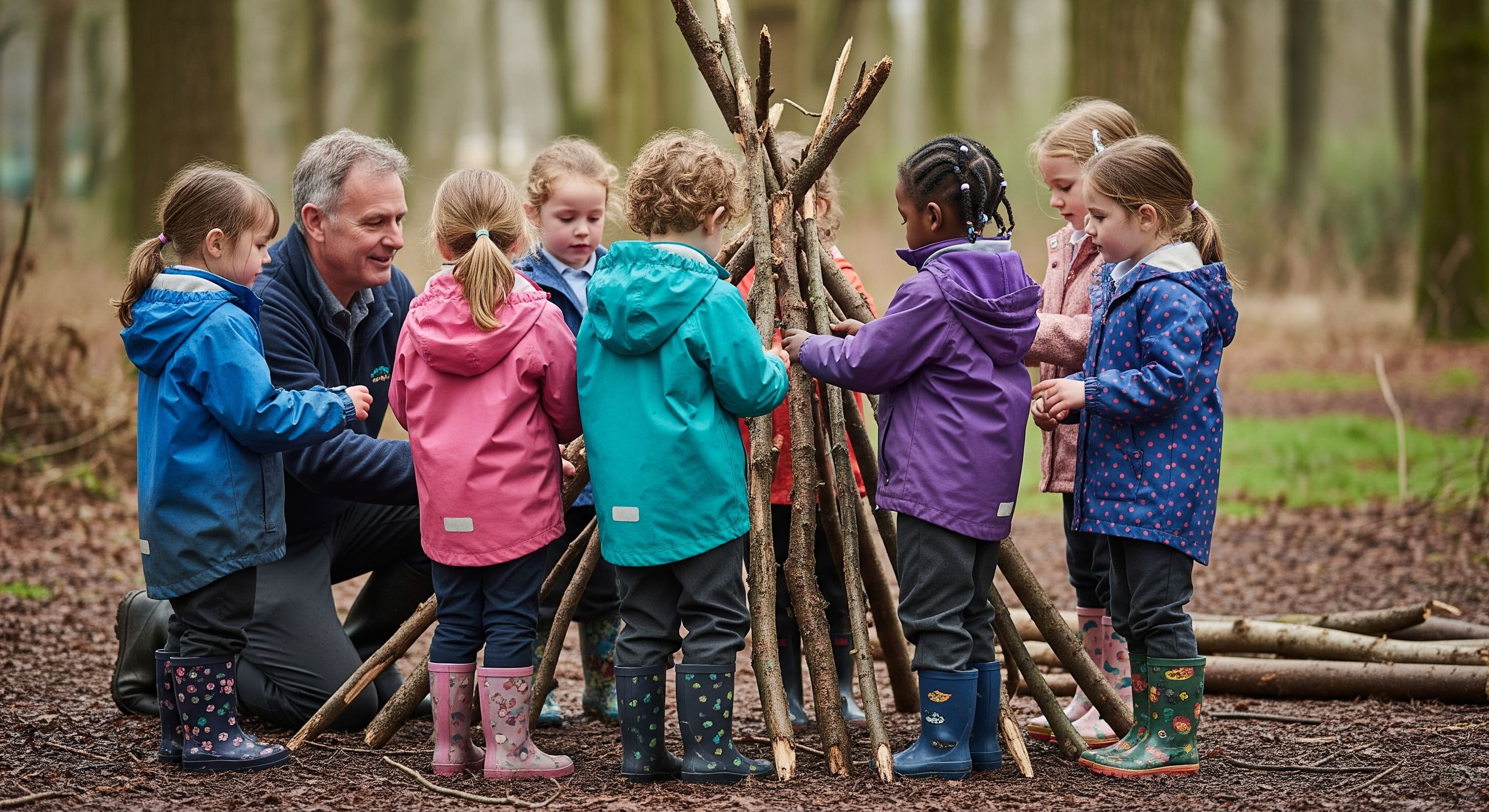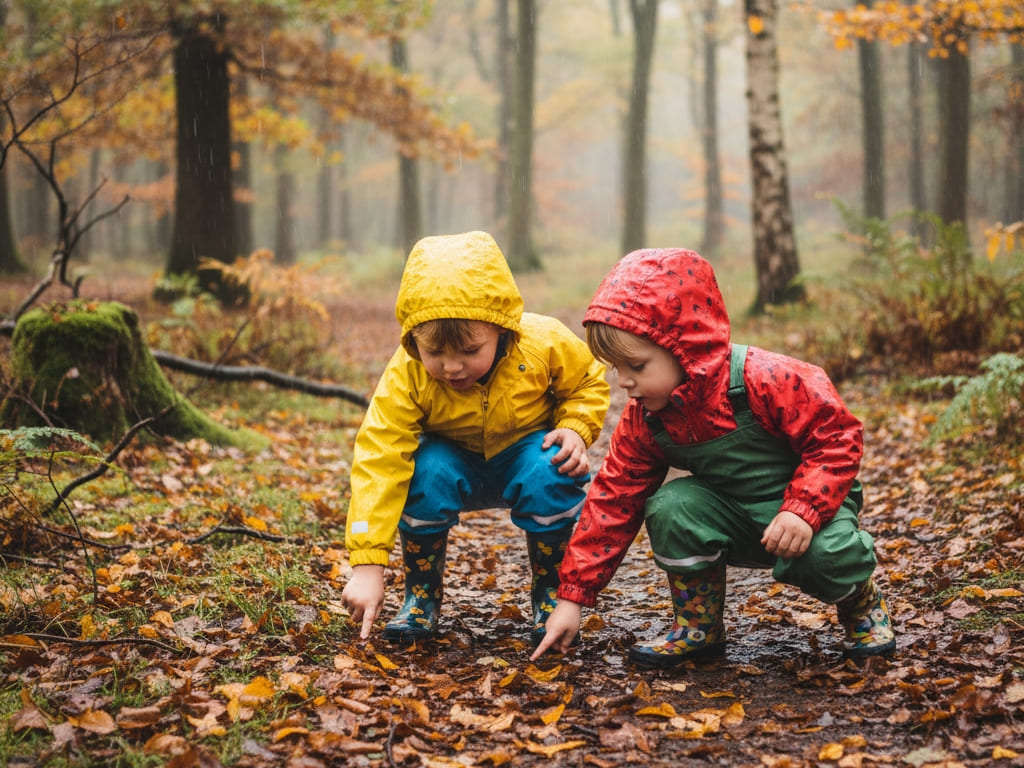· Early Years Education · 6 min read
What Age Can Toddlers Start Forest School? Complete Age Guide for Parents
Discover when your toddler can start forest school, with official age guidelines, safety considerations, and expert insights for UK parents making this important decision.

Many UK parents wonder when their little ones can join the growing forest school movement. With Forest Schools gaining popularity in the UK over the last decade, and regulatory bodies and parents increasingly keen on ensuring children spend plenty of time outdoors, this question matters more than ever.
The short answer? Most toddlers can start forest school between ages 1-3, but the right age depends on your child’s development and the specific provider you choose.
What UK Forest School Providers Actually Say
For nurseries, Forest Schools typically take from two years up until five. But some providers start even younger. Outdoor Owls takes children from one year up until five and also runs holiday camps for children four to eight years.
This range reflects the practical reality. Different providers have different approaches based on their facilities, staff qualifications, and safety procedures.
Research backs up starting young too. Studies show psychological benefits of attending forest school for preschool children aged 3 to 6 years. This research shows clear benefits for preschoolers, giving parents confidence about early enrollment.
The Forest School Association, which sets standards across the UK, doesn’t mandate a specific minimum age. Instead, they focus on what really matters: whether activities match each child’s developmental stage.
Official Safety Guidelines Shape Age Requirements
The Forest School Association’s principles reveal why age matters so much. Any Forest School experience follows a Risk–Benefit process managed jointly by the practitioner and learner that is tailored to the developmental stage of the learner.
This means qualified leaders assess each child individually. They don’t just look at birthday dates. They consider walking ability, listening skills, and emotional readiness.
Safety requirements also influence age limits. In Forest School sessions there are high ratios of adults to participants to enable supported risk taking. Younger children need more supervision, so providers must have enough qualified staff.
First aid requirements add another layer. Forest School Leaders hold a 16-hour First Aid qualification that includes scenario-based, face-to-face learning with an outdoor element, and that is relevant to the ages they have a duty of care for. This specialised training helps providers handle emergencies with very young children.
What Makes Forest School Work for Young Children
The structured approach helps toddlers thrive. Forest School takes place regularly, ideally at least every other week, with the same group of learners, over an extended period of time. This consistency builds confidence gradually.
Sessions are substantial too. Forest School sessions are each a minimum of 2 hours in duration (except where participants have severe and complex additional needs). This might seem long for toddlers, but the outdoor environment often holds their attention better than indoor activities.
The learning approach suits young minds perfectly. Play and choice are integral to the Forest School learning process, and play is recognised as vital to learning and development at Forest School. Toddlers learn naturally through exploration and play.
Observation drives everything. Forest School Leaders make observations during sessions that identify the needs and motivations of participants. This means activities adapt to what each child shows interest in, rather than forcing a rigid curriculum.
Age-Specific Considerations for Your Toddler
Ages 1-2 Years: The youngest forest school participants need constant supervision and focus on sensory experiences. They explore textures, sounds, and natural materials safely. Outdoor Owls takes children from one year up until their fifth birthday for their nurseries, but providers offering this young age typically have specially trained staff and adapted activities.
Ages 2-3 Years: Toddlers this age can handle basic boundaries and simple activities. They might participate in nature scavenger hunts, water play, and creative activities using natural materials. The focus stays on exploration rather than structured learning.
Ages 3-4 Years: Research shows strong benefits at this age. Children can follow more complex instructions, engage in cooperative play, and start using simple tools under supervision. They begin developing the nature connection that forest schools are famous for.
Ages 4-5 Years: The most common starting age for many providers. Children can participate in advanced activities like den building, basic tool use, and longer hikes. They understand safety rules better and can take on age-appropriate responsibilities.
Choosing the Right Provider for Your Child’s Age
Look for qualified leadership first. Forest School is led by qualified Forest School practitioners, who are required to hold a minimum of an accredited Level 3 Forest School qualification. This qualification ensures they understand child development and can adapt activities appropriately.
Ask about age-specific programmes. Some providers mix all ages together, while others separate groups by developmental stage. Neither approach is wrong, but knowing helps you choose what suits your child.
Check the commitment expected. Forest School programmes are run for the same core group of participants and, as a minimum, are either: For 24 consecutive weeks (the equivalent of two full school terms) in 1 year, covering 2 seasons, OR For 12 consecutive weeks in each year over 2 years. This long-term approach works best but requires planning from families.
Consider trial options. Outdoor Owls offers two sessions for two hours long each before a child attends a full day so that they take steps to become familiar with the environment and team. These taster sessions help you assess whether your toddler is ready.
Making the Decision: Is Your Toddler Ready?
Age alone doesn’t determine readiness. Consider these practical factors:
Can your child walk confidently on uneven ground? Forest environments involve roots, slopes, and natural obstacles that challenge balance.
Do they follow simple instructions? Safety in natural environments depends on children understanding and responding to adult guidance.
How do they handle separation? Forest school involves spending extended time away from parents in a new environment with new adults.
Are they toilet trained? While not always required, it makes forest school easier for everyone involved, especially for longer sessions.
Do they show interest in nature? Children who already enjoy outdoor play often adapt more easily to forest school environments.
The Bottom Line on Forest School Ages
Most UK toddlers can start forest school between ages 1-3, with many providers accepting children from age 2. The key is finding a qualified provider who assesses individual readiness rather than just looking at birth dates.
Forest Schools have gained popularity in the UK and regulatory bodies and parents are increasingly more keen on ensuring children are spending plenty of times outdoors. This trend reflects growing understanding of outdoor learning benefits.
The research supports early starts too, with studies showing benefits for children as young as 3. Combined with qualified supervision and age-appropriate activities, forest school can provide valuable experiences for very young children.
Your decision should balance your child’s individual development, your family’s circumstances, and the specific programme offered by local providers. The best forest school is one that matches your toddler’s needs and helps them develop confidence, creativity, and connection with nature.



